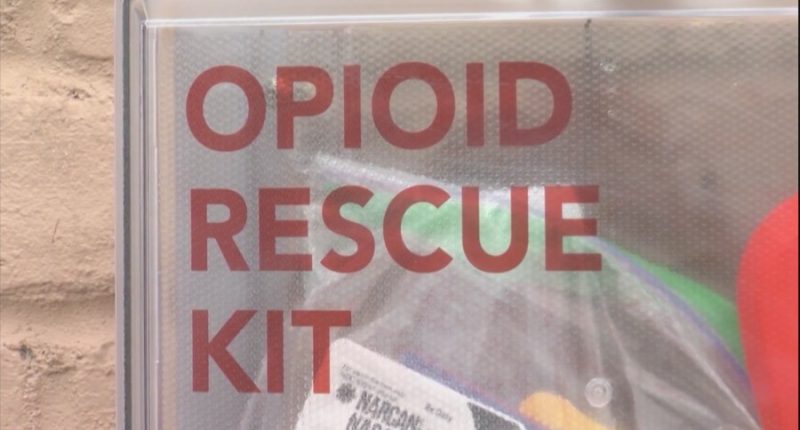Share this @internewscast.com

SAVANNAH, Ga. () – In 2024, overdose deaths saw a significant decline, with the Centers for Disease Control (CDC) noting nearly 30,000 fewer lives lost compared to the previous year.
This marks the largest single-year reduction on record, according to the National Center for Health Statistics. The CDC highlighted Georgia’s achievement as the state experienced a 22% decrease in 2024.
Dr. Jay Goldstein, assistant medical director with Memorial Health said there are two key drivers for the overdose decline: awareness and education.
“There’s a heightened awareness of the overdose risks and the availability of a reversal agent,” he explained. “This awareness extends beyond drug users to include first responders like firefighters, paramedics, police officers, and healthcare workers. We can reach individuals more quickly and save lives using Narcan, the reversal agent.”
Goldstein said age range varies from teenagers to people in their 60’s. He added most commonly it is 25 to 40-year-olds.
“There are fentanyl test strips out there, there’s an awareness of where they’re getting the drugs from, and it’s a safer environment for those who are going to use that,” he said. “They use it more safely also. But obviously the big thing for us is that we’re trying to educate, especially the younger folks, to just never use. We feel like at this point we’re seeing a drop off in the consumer and the addiction starting in the younger ages.”
He said locally, we are no stranger to trends and waves of drug infestation in the community. He told individuals still need to watch for the alteration of certain substances like drugs laced with fentanyl.
“We’re actually trying to get a program up and running here at Memorial [Health] where a drug overdose might come in and we can actually start them on drugs that will prevent them from wanting to have drug overdoses such as like Suboxone…,” Goldstein said.
He added, “I think mental health is a big aspect of things. I think social isolation, since we’re coming out of the covid pandemic, has made a major difference and then also the ability to have treatment programs. so not only do we have treatment programs that people can go to, which had dried up and now they’re getting more plentiful, but also the ability when they come into a clinic and they have an overdose, to try and attack them then and treat them there.”
Dr. Goldstein told while this is a sign of progress, there is still work to do.










